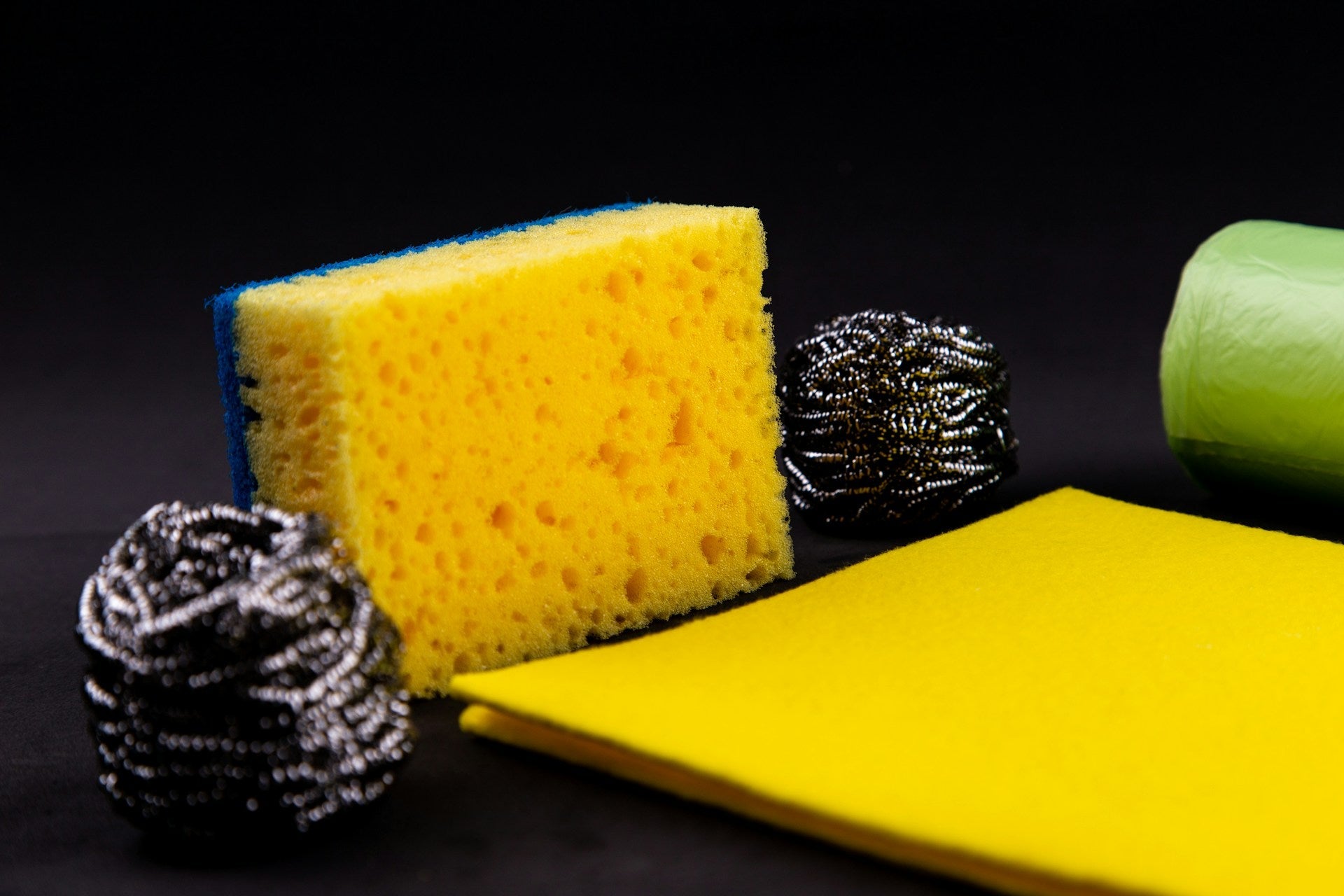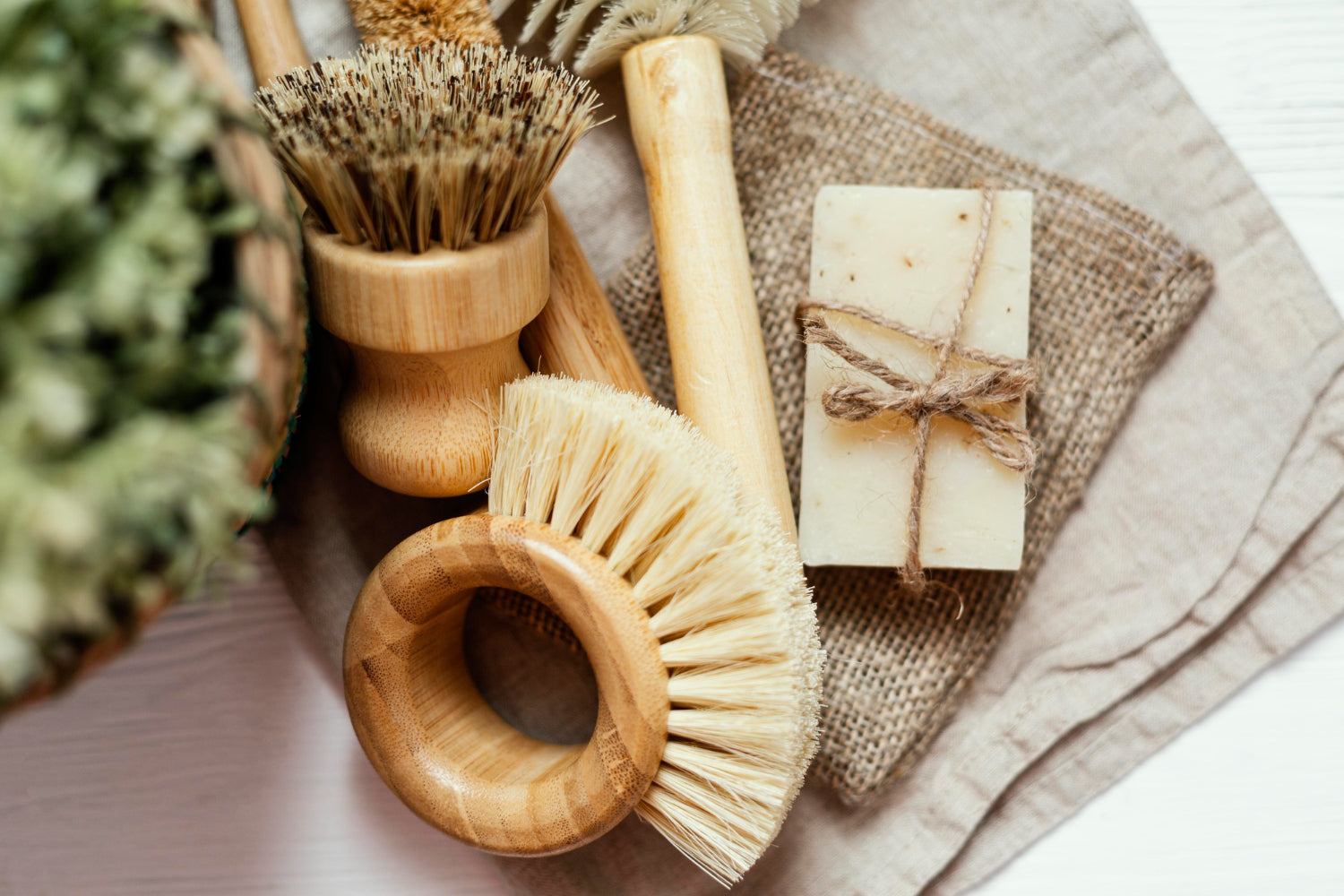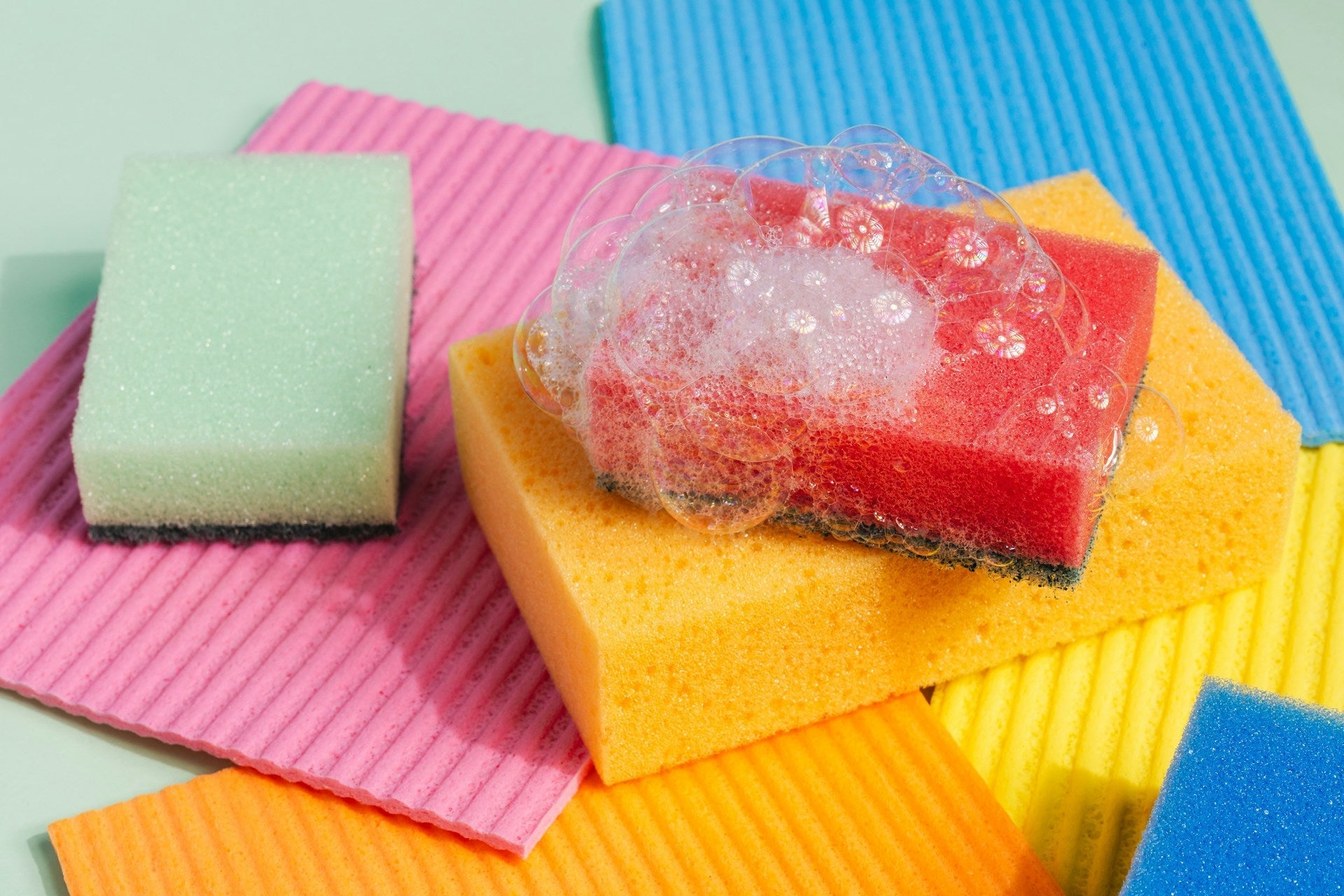Most of us reach for a kitchen sponge without giving it much thought. It is just a tool to clean dishes, wipe counters, and scrub pans. But how dirty are kitchen sponges, really? The answer is much dirtier than they look. These cleaning helpers might seem harmless, but they usually carry more bacteria than just about anything else in your kitchen.
We use them every day expecting them to help, yet they often spread more mess than they remove. That is not what you want near your food or the people you care about. Let’s look at why kitchen sponges get so dirty, why cleaning them is not enough, and which options can keep your kitchen fresher while cutting down on waste.
What’s Really Hiding in Your Sponge?
A kitchen sponge is a perfect hideout for germs. It stays damp a lot of the time, trapping small bits of food, grease, and crumbs deep inside the holes. All that trapped moisture and mess makes it easy for germs to grow. It is a warm, moist place, and those are the exact conditions bacteria love.
Even if your sponge looks fine or does not have a bad odor, it can still carry plenty of bacteria that you cannot see. You can wash it, wring it out, and leave it by the sink to air dry. Still, many types of bacteria will hold on inside, protected by the sponge’s small nooks.
The real problem is how often we use the same sponge over and over. Bacteria get plenty of chances to settle in and spread. Even scrubbing with regular dish soap does not get inside far enough, which means your sponge can sometimes move germs around on surfaces you just cleaned.
Can You Actually Clean a Sponge?
Some people try to keep bacteria under control by microwaving or dishwashing their sponges. It sounds handy and sometimes works on the top layers. But these tricks come with safety concerns and do not always tackle the actual problem.
For a microwave, the sponge must be wet or you could risk a fire. Never put a metal scrubber in the microwave. Dishwashers need to be hot enough to make a difference, but not all sponges hold up through that cycle. Instead, some melt or fall apart.
Even when everything goes right, deep inside the sponge bacteria can survive. Cleaning can help a little, but it is only a short-term fix. After a few uses, it does not do enough. The sponge just wears out and holds more germs with each wash. Cleaning does not mean it is safe to keep using.
When Is It Time to Throw That Sponge Away?
Sponges should not stick around for months. If yours smells or falls apart, it is beyond time to replace it. But even a sponge that still looks okay might not be safe to use. Many experts suggest you toss your kitchen sponge every week, or every two weeks at the longest.
There is another issue: most sponges are made from plastic or oil-based materials, which means they go straight to landfills. They cannot be recycled or composted and might take hundreds of years to break down. With each old sponge in the trash, the pile of plastic waste gets bigger.
Throwing away sponges quickly stops germs from spreading, but it adds to plastic waste. So keeping an old sponge is not great for your health, while tossing it is not good for the planet.
Smarter, Cleaner Sponge Alternatives
You can keep your kitchen clean and create less trash by switching to better tools. There are several smart alternatives that make cleaning easier and more eco-friendly.
-
Dish brushes: They dry off quickly and do not trap as much food or bacteria as sponges do. Brushes with wooden or metal handles are compostable or recyclable at the end of their life.
-
Unsponges: Made from cloth or other natural materials, they can be washed in your laundry. They work best for lighter cleaning jobs and are biodegradable.
-
Silicone sponges: These last much longer than traditional sponges. They repel bacteria better, though they do not absorb soap or water as well, so they might not be for every job.
- Linen cloths: Tough, compostable, and useful for wiping and drying. Linen is stronger than cotton, makes cleanup easy, and can go in the compost bin when worn out.
Each tool has its strengths. Dish brushes are sturdy for scrubbing, while cloths are soft and good for wiping surfaces. A mix of tools covers all kitchen jobs and keeps germs from sticking around.
Plastno’s biodegradable sponge cloths stand out for their durability and fast-drying design. Made from plants, these cloths are both compostable and reusable, helping cut down on single-use plastic and making cleaning up safer for your kitchen and gentle on the environment.
Why It Matters in Fall
When October rolls around, home cooking becomes a daily habit. Warm dishes, holiday baking, and more time spent in the kitchen add up to heavier sponge use. More food prep, messes, and sticky pans mean your sponge works overtime, soaking up even more bacteria.
With more kitchen use, your old cleaning tools can get dirtier faster than ever. Seasonal baking and meal prep give germs new chances to hide in your sponge. Making the switch to a better option now sets you up for a cleaner, healthier season.
Stocking up on smarter tools before busy holidays lets you keep your mind on the fun parts of fall. You can cook, bake, and prep meals knowing your cleaning routine is safe and earth-friendly.
Building a Cleaner Kitchen for Every Season
The humble kitchen sponge can hide more germs than you realize, even after you try to clean it. Holding on to old sponges can risk both your health and the environment. When you try reusable options, you use fewer single-use plastics, and your surfaces are less likely to spread germs.
Making a few easy changes can lead to a kitchen that works better for you. With biodegradable sponge cloths, compostable products, and picks that last through many busy seasons, your home stays fresher and cleaner with every meal you make.
Ready to ditch the stink and switch to something that works better and feels better to use? Grab a sponge that won’t just add to the mess. Our options are made to stay fresh longer and help cut down on waste while still getting your kitchen spotless. From wood-pulp blends to reusable cloths, choosing the right cleaner can make everyday chores easier and a little less gross. Take a look at our full line of smart swaps, like our durable, low-waste biodegradable sponges, and give your sink a proper refresh. Have questions or need help picking the right fit for your cleanup routine? We’re happy to help at Plastno.






Share:
Fall Cleaning Checklist: Eco-Friendly Tips for a Cozy Home
How to Make a Cleaning Schedule